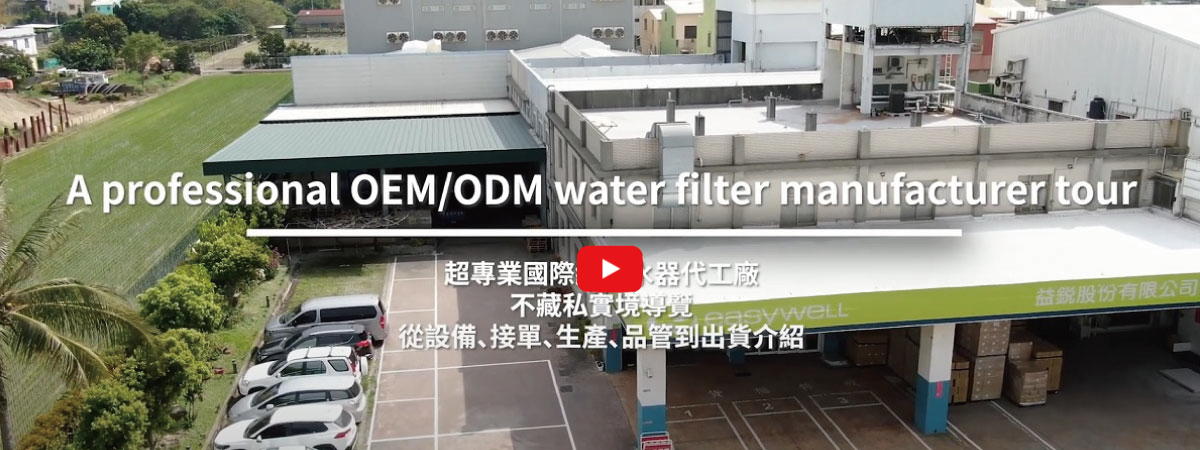Mozambique – The market survey report of water purifier
First, water purifier industry.
In Mozambique, the industry of household water purifier still hasn’t developed much. It’s just like we had two salesmen who went to Africa to conduct a survey of shoes market before. One of them said the market had a great potential, because everyone didn’t wear shoes there. But the other person held an opposite viewpoint. In my opinion, I would agree with the second salesman’s outlook. If you don’t even have money to eat, do you consider whether drinking water is filtered?
I went to local shopping mall and downtown to make a market research two days, and none of the shops or counters sold water purifiers.
If you want to know the water quality analysis in Mozambique, you can download it’s free.
Second, the important raw material of water purifiers filter media.
Activated carbon which is made by coconut shells is an indispensable filtering media for each water purifier. According to the statistics of APCC, Mozambique is the world’s top 20 countries for coconut yield. Unfortunately, there are no active carbon subcontracting factories here. Coconut shells can be only used to making something with low commercial value, such as plywood industry.
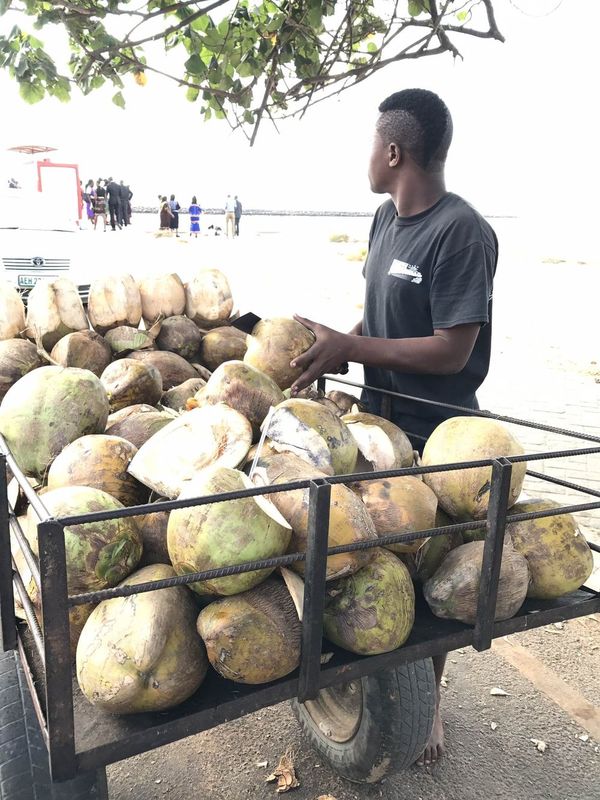
Third, rich deposits of mineral in Mozambique.
Although there are rich mineral deposits here, heavy metal content of groundwater is also higher than other countries. In Mozambique, most of livelihood water is taken from well water, so we hope the water purifier market can be popularized here as soon as possible.
Fourth, men doing women’s work.
4.1 Men sell women’s underwears.
There is a feature in this country that men are doing women’s work. Every roadside stand which is selling second-hand lingerie is all men, and it’s usual for local people.
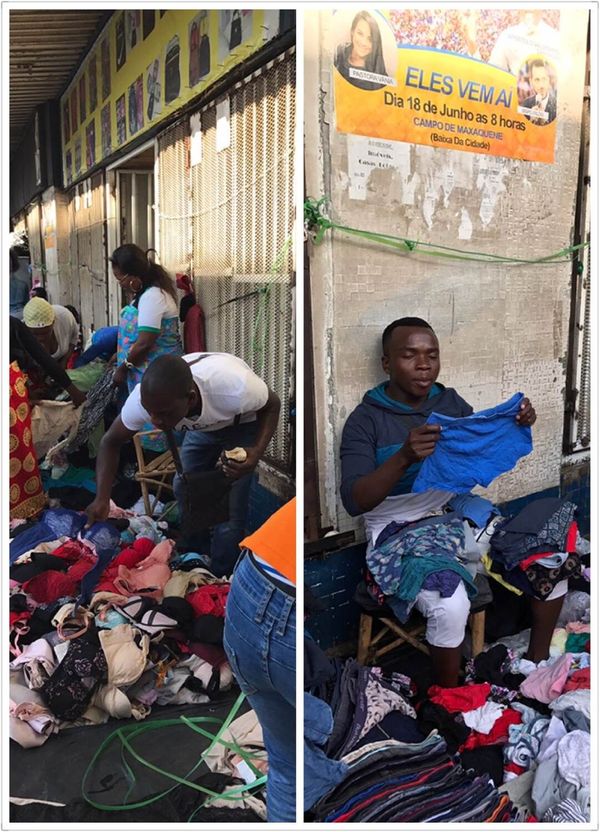
4.2 Clothing alteration service.
There were several sewing machines on the side of the road, and the people in charge of clothing alteration were men. All the clothes sold in the market were second-hand, including shoes and lingerie. If it doesn’t fit, they can provide you alteration service immediately.
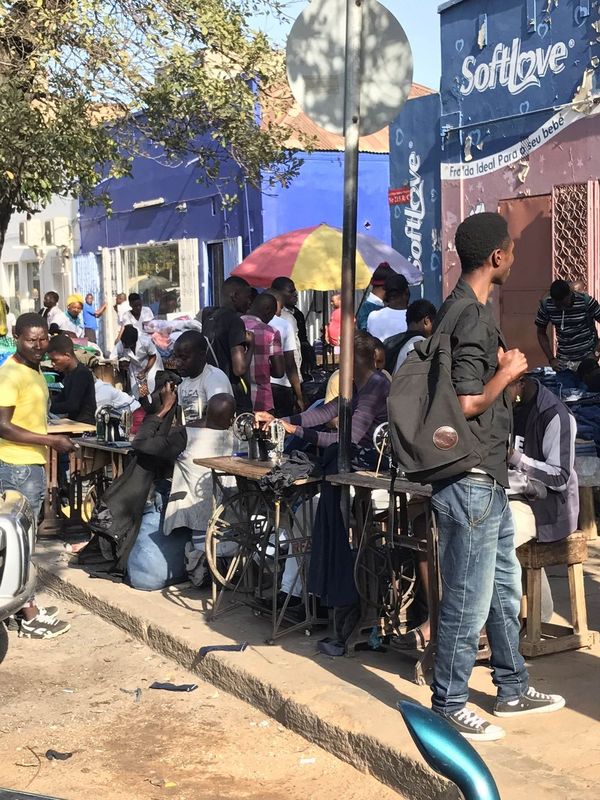
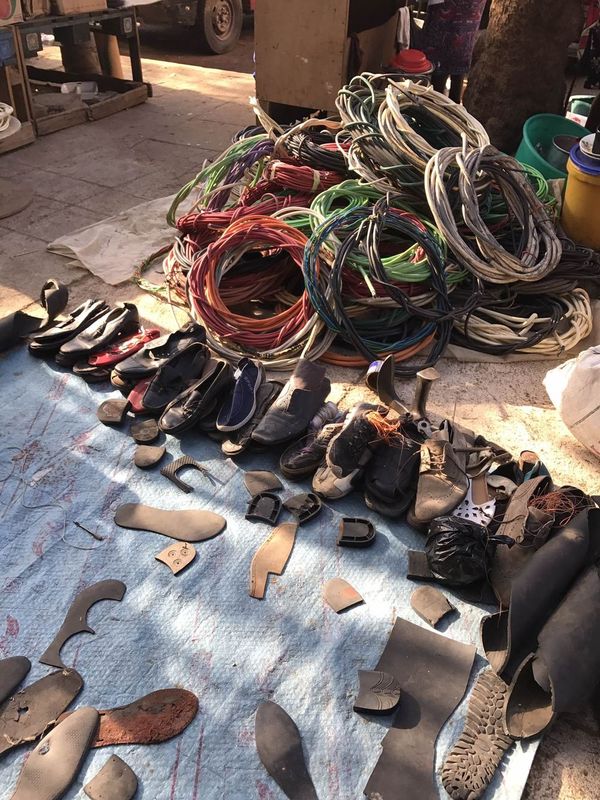
Fifth, the second-hand market.
Everything we saw in the market was all second-hand, such as underwear, shirts, coats, shoes, hats, and so forth. Besides, you barely saw new cars on the road. Lots of cars on the road were also second-hand, and most of them came from Japan. Electric wires, cellular phones, and 3C products can all be second-hand. Some members came from Taiwan together with me before. They had exported clothes, air conditioners and car parts which were second-hand, too.
In Africa, people recycle and reuse things what we threw away. It’s good for earth because it reduces much pollution.
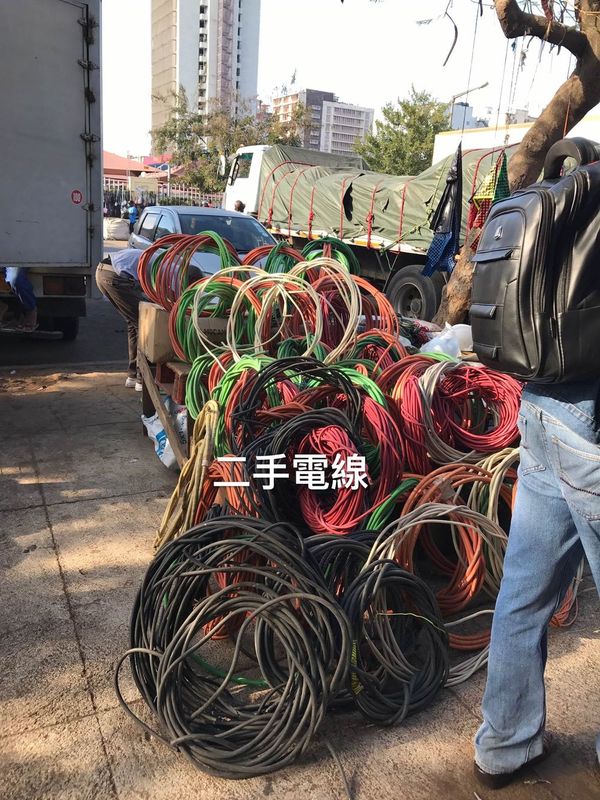
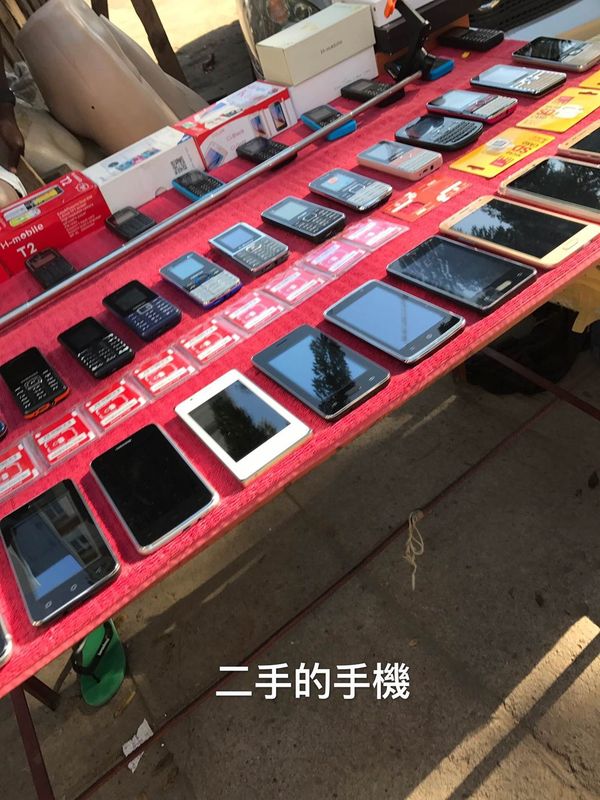
Sixth, something you should know for cooperation with Southeast Africa customers.
Though India and Pakistan are as incompatible as fire and water on politics, they are closely interdependent races in Southeast Africa. Although their population is only one percent of the local population, they control the main economic lifeline. If someone wants to penetrate the local market, he need to deal with them.
Welcome to download this report. But please indicate the source.
Source:Rodger Lin from easywell water system, Inc
